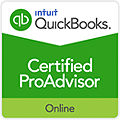Carrying out a post-tax season review of your income tax return can be very helpful way to gain new insight into your financial situation. It’s a bit like looking at a familiar place from a different and fresh perspective — you never know what you might discover. See what a review of your federal income tax return might reveal about the following issues.
Investments — Your Winners and Losers
Look for evidence of excessive gains and losses within a compressed time frame. If you are a trader, this might be typical. However, if you are an average investor, these gains or losses may point to the fact that you are buying and selling too frequently. You should consider the fees associated with excessive trading as well as whether your portfolio is structured in a way that meets your goals and your tolerance for risk.
You may have a capital loss carryforward that represents an unused loss you are carrying over to offset future capital gains. If you intend to rebalance* your taxable account investments, see if there will be capital gains that can be offset by the loss you are carrying forward.
Another possible way to reduce taxes is to consider municipal bonds. Interest on municipal bonds is generally exempt from federal income taxes and possibly state and local income taxes. Of course, the credit ratings of municipals should be analyzed before purchase. Although bonds with lower credit ratings may offer higher yields, they typically carry a higher risk of default.
Retirement Planning
You may be able to lower your current year’s income tax liability by increasing the amount you contribute to tax-favored retirement plans (limits apply). If you are taking distributions from a retirement plan still held with a former employer, you may want to consider a rollover into one account to consolidate accounts and simplify your recordkeeping. If you have multiple individual retirement accounts (IRAs), also think about consolidating accounts.
Your Business
If you operate a business, review of your tax return may point to a wealth of tax-saving and other planning opportunities. For example, if you are self-employed as a sole proprietor and filed a Schedule C, look into whether a different business form could make sense. For example, an S corporation can limit a business owner’s personal liability and may offer tax savings. If you do not already have a retirement plan in place, consider establishing one. A retirement plan established through your business allows you to save for your future financial security and deduct your contributions. Additionally, there may be income-shifting opportunities among family members through employment in the business.
Itemized Deductions
Review your Schedule A for potential opportunities. Is it possible to get a better rate and term on your mortgage loan? Would refinancing or switching to a 15-year term make financial sense? If you make charitable donations, look into contributing appreciated stock in place of cash. When you donate appreciated stock held more than one year, you receive a deduction for the value of the gift and you avoid paying capital gains tax on the appreciation.
You could also investigate establishing a charitable remainder trust. Doing so allows you to make a gift to charity, retain an income from the donated assets for life, and claim a current tax deduction for your gift.
Other Considerations
If your filing status has changed due to a life change such as marriage or divorce, make sure that change is reflected when you file this year’s tax return. In addition, be sure to keep your beneficiary designations on your retirement accounts and insurance policies current so that they accurately reflect your present status. If you have children, you may want to consider setting money aside for their future education. There are tax-advantaged college savings opportunities that you should look into further.
A review of your tax return and your investment transaction statements can help you identify areas where you may be able to lower the taxes you’ll have to pay next year. Your financial and tax professionals will be able to assist you in that effort.
*Rebalancing a portfolio may create a taxable event if done outside of a retirement account.
Accept our invitation for a free initial consultation and learn more about how we can help save you money on taxes. Call us at 713-396-3172 to set up an appointment.









